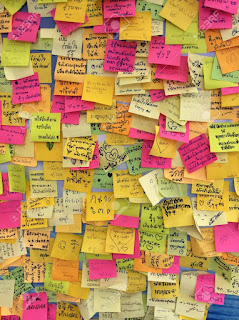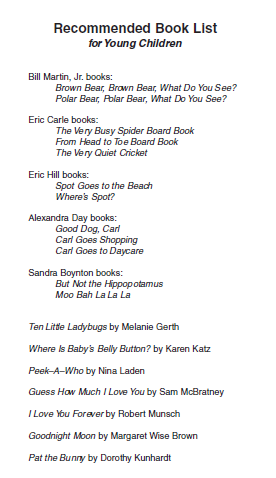How Teachers can help students with Language Delays remember information..
Students with Language Deficits struggle with remembering, processing and organizing the information they hear: Primarily all the information they hear from teachers in the classroom.  |
| The mind of a language delayed student....... |
Imagine this!!.... If every time you heard a piece of information in a day you write it down on a sticky note. By the end of the day you may have 100 or more notes. If you don't put these notes in a category or place that means something to you then all you end up with is a bunch of disorganized and meaningless notes! That is how the mind of students with language delays function. It's not that they cannot write the information down; they just need the help in making the information useful and meaningful before moving on to the next "sticky note" in their mind.
YOU can help your students improve their memory recall by building some working memory boosters in your classroom:
*Teach visualization skills-create a picture of what was just read or heard.
**Connect emotions to the information- ask what it might have felt like to (i.e. be the news anchor in the middle of the hurricane).
Have your child teach you- ask the child to teach the skill or what they have just learned to you.
Have your child teach you- ask the child to teach the skill or what they have just learned to you.
*Suggest games that use visual memory- memorize a license plate of the car in front of you and recite it from memory and then say it again backwards.
*Play Cards- Play UNO or Go Fish; kids have to keep the rules of the game in mind; and also has to remember what cards he has and which ones other people have played.
*Make up category games- it's easier when things are "placed" in categories.
*Number your directions- begin sentences with words like.. "I need you to do these three things..."
*Help make connections- take what information the student already knows and build a bridge between the old and new information.




